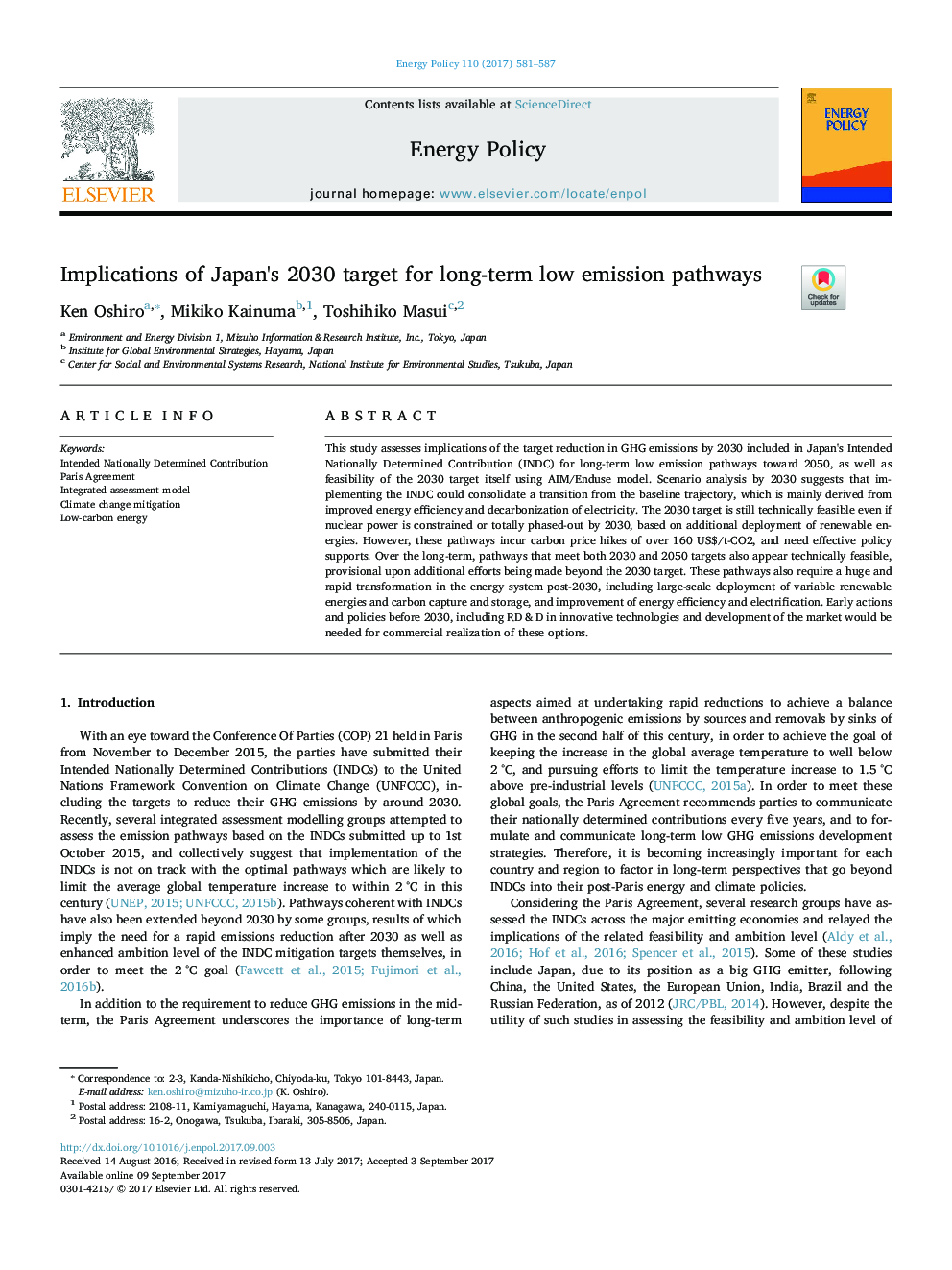| کد مقاله | کد نشریه | سال انتشار | مقاله انگلیسی | نسخه تمام متن |
|---|---|---|---|---|
| 5105582 | 1481248 | 2017 | 7 صفحه PDF | دانلود رایگان |
عنوان انگلیسی مقاله ISI
Implications of Japan's 2030 target for long-term low emission pathways
ترجمه فارسی عنوان
پیامدهای هدف 2030 ژاپن برای مسیرهای درازمدت کم انتشار
دانلود مقاله + سفارش ترجمه
دانلود مقاله ISI انگلیسی
رایگان برای ایرانیان
کلمات کلیدی
طرح توجیهی ملی تعیین شده، توافق نامه پاریس، مدل ارزیابی یکپارچه، کاهش تغییرات اقلیمی، انرژی کم کربن،
موضوعات مرتبط
مهندسی و علوم پایه
مهندسی انرژی
مهندسی انرژی و فناوری های برق
چکیده انگلیسی
This study assesses implications of the target reduction in GHG emissions by 2030 included in Japan's Intended Nationally Determined Contribution (INDC) for long-term low emission pathways toward 2050, as well as feasibility of the 2030 target itself using AIM/Enduse model. Scenario analysis by 2030 suggests that implementing the INDC could consolidate a transition from the baseline trajectory, which is mainly derived from improved energy efficiency and decarbonization of electricity. The 2030 target is still technically feasible even if nuclear power is constrained or totally phased-out by 2030, based on additional deployment of renewable energies. However, these pathways incur carbon price hikes of over 160 US$/t-CO2, and need effective policy supports. Over the long-term, pathways that meet both 2030 and 2050 targets also appear technically feasible, provisional upon additional efforts being made beyond the 2030 target. These pathways also require a huge and rapid transformation in the energy system post-2030, including large-scale deployment of variable renewable energies and carbon capture and storage, and improvement of energy efficiency and electrification. Early actions and policies before 2030, including RD&D in innovative technologies and development of the market would be needed for commercial realization of these options.
ناشر
Database: Elsevier - ScienceDirect (ساینس دایرکت)
Journal: Energy Policy - Volume 110, November 2017, Pages 581-587
Journal: Energy Policy - Volume 110, November 2017, Pages 581-587
نویسندگان
Ken Oshiro, Mikiko Kainuma, Toshihiko Masui,
